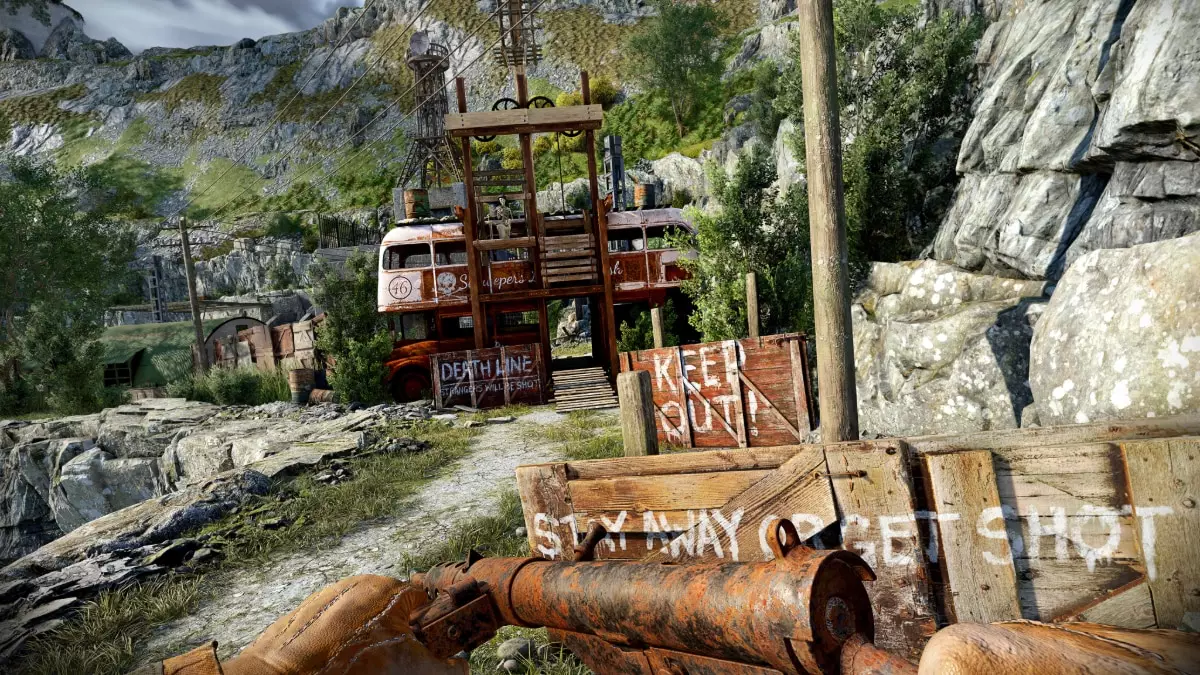In a world where gaming giants often overshadow smaller studios, Rebellion Developments has accomplished a remarkable feat with the launch of their action-survival game, Atomfall. Released across various platforms including PC, PlayStation, and Xbox, the game not only found a home in the viral space of social media chatter but also clocked in over two million players shortly after its debut. The game’s launch coincided with its availability on Xbox Game Pass, a strategic move that CEO Jason Kingsley credits for the title’s unexpected triumph. This partnership underscores a larger trend in the gaming industry—the potential for subversive alliances that can elevate indie games into mainstream popularity.
A Reflection on Discoverability Challenges
Discoverability remains one of the greatest hurdles in the crowded arena of game releases. For a new intellectual property such as Atomfall, breaking through the noise can feel Herculean. Kingsley’s assertion that launching on Game Pass was integral to reaching a broader audience is not merely a corporate talking point; it is a testament to the nature of contemporary gaming consumption. In an age where traditional marketing methods are often drowned out by the digital cacophony, platforms like Game Pass provide a beacon for innovation. Players who may never have ventured to pay full price for a new title found themselves drawn to Atomfall purely out of curiosity fostered by the subscription service.
Community-Led Word-of-Mouth: The Unsung Hero
The importance of community in the gaming ecosystem cannot be overstated. Kingsley’s remarks highlight how Game Pass serves as a conduit for organic word-of-mouth marketing. Once players discover a game they enjoy, social media platforms become fertile grounds for recommendations, transforming casual interactions into broad discussions. In this context, few marketing strategies rival the power of user advocacy. Friends recommending a game—”I found this gem on Game Pass”—is an enticing incentive for non-subscribers to invest. Hence, the viral nature of Atomfall’s launch story, facilitated by Game Pass, is more than just a business strategy; it represents the evolving dynamics of community engagement in gaming.
Sales vs. Subscribers: The Double-Edged Sword
While Kingsley admits that the player count includes Game Pass subscribers, it also raises complex questions about sales dynamics in the era of subscription services. He notes a significant uptick in sales numbers that exceeded their mid-range estimates, suggesting that Game Pass does not necessarily cannibalize sales; rather, it creates a viable pathway for heightened exposure and eventual purchase. However, there’s always an underlying concern about sustainability—Will this model continue to provide financial viability for indie studios? The dichotomy between gaining access to a vast audience and the possibility of diminished unit sales presents a complex web of financial implications for developers to navigate.
Envisioning the Future: Atomfall as a Franchise?
With Atomfall’s success in mind, the tantalizing possibility of an expansion or sequel looms large. Kingsley’s contemplation, “can we find the resources to do it?” echoes the sentiment of many within the indie gaming space: success can often feel like a double-edged sword. The success of Atomfall has indeed opened doors but also raises the stakes for any forthcoming projects. With questions surrounding funding and resource allocation, the future of this franchise will likely hinge on the delicate balance between ambition and necessity.
In an industry characterized by rapid evolution and cyclical trends, Atomfall and Rebellion Developments have presented a case study in leveraging partnerships, harnessing community, and recognizing the shifting paradigms of game consumption. As we witness the ongoing metamorphosis of the gaming landscape, stories like that of Atomfall remind us that the world of independent game development can indeed thrive, not just survive, in an ecosystem dominated by larger entities.

Leave a Reply